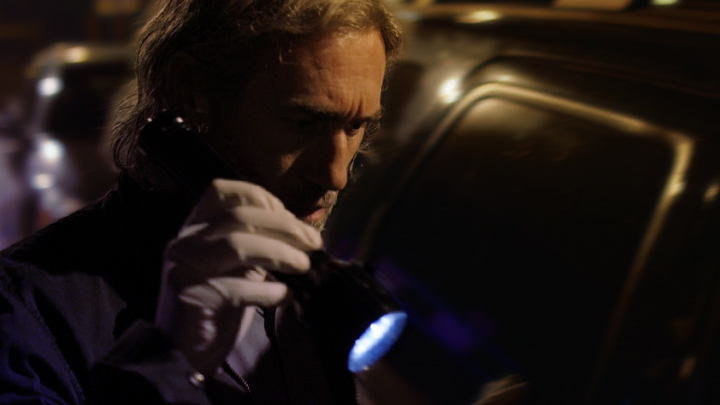Thanks to Wolfman for helping with edits.
The first video game I can distinctly remember playing was 1993’s Monster Bash, a side-scroller that was released in three separate parts. I was only three or four at the time, yet the concept of episodic releases seemed fascinating to me. This was a period long before studios had the capacity to adjust their work through software updates, meaning the potential to incorporate improvements into an ongoing opus was an intriguing prospect.
As I played through Telltale Games’ five-part Tales of Monkey Island series on my Wii years later, seeing this practice in effect (in this case, incrementally improving Tales’ optimization for the underpowered machine) was kind of neat. Of course, Tales graced digital storefronts in 2009, releasing onto a dramatically different gaming landscape. Titles could now readily be tweaked through patches, and a weakness posed by the episodic model had long been exposed: what if the next part never comes? Plenty of episodic games have had their lives stanched (Half-Life 2: Episode Two‘s unresolved cliffhanger being a notorious example), bringing us to MISSING: An Interactive Thriller – Episode One, a full motion video adventure by Zandel Media.

MISSING channeled the FMV games of yesteryear, aiming to learn from them and provide an immersive experience. (Image: Zandel Media)
MISSING’s first and only installment hit smartphones in December 2014. It came to Steam (the platform I played it on) the following May, one month shy of Sam Barlow’s brilliant Her Story. Episode One is split into five chapters, all but the second of which star abductee David Newcastle. His story begins with him regaining consciousness alone in a warehouse, tied up and dangling from the ceiling. In terms of the gameplay it presents, the first chapter showcases more or less everything Episode One has to offer, teaching all of the life-saving skills needed throughout the game.
Befitting its genre, MISSING utilizes easy to control point and click elements; you use your mouse to interact with your surroundings, and the cursor changes from an arrow to a hand when it’s hovering over something interactive. Clicking on conspicuous items adds them to your inventory, whereas environmental set pieces may need to be manipulated either by moving or using items on them. Sometimes a puzzle’s solution is hidden somewhere in the environment (such as a password carved in an elevator) and on occasion you’ll need to decipher something on your own. None of the puzzles will stump you for any length of time, however. They only really amount to being brief breathers from the cinematics.

MISSING’s first challenge is a slider puzzle, seen here attached to Dave’s right wrist. How he solved it while his hands were tied remains the true mystery. (Image: Zandel Media)
Zandel boasted how MISSING’s action sequences would test one’s reflexes, making it rather deflating how inconsequential the quick time events actually are. The climax in the final chapter epitomizes this as Dave runs through an explosive-rigged obstacle course. How you handle the quick time events here should in theory affect how Dave advances in some way, perhaps branching off into different exits or killing him as punishment for slow reaction times. I replayed this sequence six times (once intentionally failing every QTE) and received no meaningful variance to show for it. Somehow, Dave always stumbled out to safety.
MISSING’s unambitious but inoffensive mechanics are unfortunately matched by what little of the story the episode gives us. Detective Lambert, the second chapter’s lead, had no personality whatsoever. Dave was allotted a few benefits in the thirty or so minutes we shared with him; we saw teases of his backstory (the messages and photographs his captor leaves imply they share a history) and we witnessed him emit several panicked facial expressions and grunts. While it might be unfair to judge the plot of a work that is (while complete) explicitly meant as the beginning of a larger story, Episode One gives too little to cling on to regarding its overarching narrative. I did not leave with the desire to learn what happens next and, as an episodic game, that’s probably the harshest thing I can say.

The unmarked letters in this crossword spell out a code. Along with the two slider puzzles, this was the absolute best MISSING had. (Image: Zandel Media)
Ordinarily I close a “Beat the Backlog” article by offering some kind of recommendation for the game in question, but doing so is pointless in this case. Her Story was a critical success, rejuvenating interest in its long dormant genre (ironically, Barlow described his entry into the genre as an ”accidental” one), but that fervor did not benefit MISSING. One year after its Steam release, Zandel came forward with an announcement: Episode One did not sell well enough to justify continuing it, forcing the studio to close and, consequently, delist their aptly named game from all marketplaces. And that’s disheartening; even if Episode One wasn’t a strong foundation, it’s unsettling knowing it was one part of a greater whole that will (almost certainly) never be realized. Dave is doomed to never escape his aggressor, nor will most gamers ever even learn of his plight.

Reminiscent of a Telltale production, Episode One closes by teasing what’s to come. Sadly, a tease is all this footage will ever amount to being. (Image: Zandel Media)
- Character Chronicle: Funky Kong - February 13, 2025
- Beat the Backlog: Donkey Kong Jr. - January 15, 2025
- Level with Me: Treasure Trove Cove (Banjo-Kazooie) - January 13, 2025








